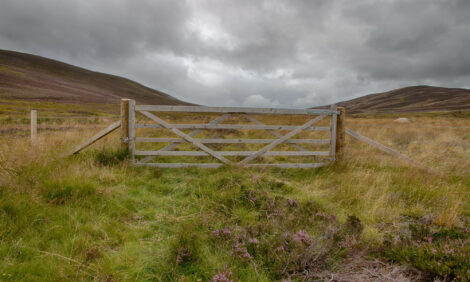



Room for Improvement in Biosecurity on Spanish Pig Farms
SPAIN - Pig farmers pay more attention to biosecurity measures regarding visitors and vehicles than to the risks posed by the introduction of new breeding animals, according to a new study.According to a study published in Preventative Veterinary Medicine, M. Simon-Grifé of the Universitat Autònoma de Barcelona and co-authors there and at the University of Cordoba report that the pig farmers they surveyed take biosecurity measures based on two scenarios: in the presence and in the absence of a highly contagious disease.
According to the farmers and veterinarians, the most important biosecurity measures were those aimed at minimising the risk of disease introduction by visits and vehicles.
Biosecurity practices seeking to reduce the risk of disease introduction by breeding stock, however, were not applied on a considerable number of farms.
The findings also revealed that medium-sized to large farms located in high pig density regions reported higher biosecurity measures than small herds located in low pig density areas.
The researchers had surveyed 100 pig farms in Spain to determine the biosecurity measures currently applied, as reported by farmers, and to investigate the importance awarded by farmers and veterinarians to each of these measures.
Data was gathered by means of a questionnaire administered to farmers and veterinarians.
Multiple-correspondence and two-step cluster analyses were performed to investigate the effect of farm type on the biosecurity level. Farmers awarded significantly higher scores to their farms’ level of biosecurity than the veterinarians servicing the same farms.
Reference
Simon-Grifé M., G.E. Martín-Valls, M.J. Vilar-Ares, I. García-Bocanegra, M. Martín, E. Mateu and J. Casal. 2013. Biosecurity practices in Spanish pig herds: Perceptions of farmers and veterinarians of the most important biosecurity measures. Preventive Veterinary Medicine, 110(2):223–231.






